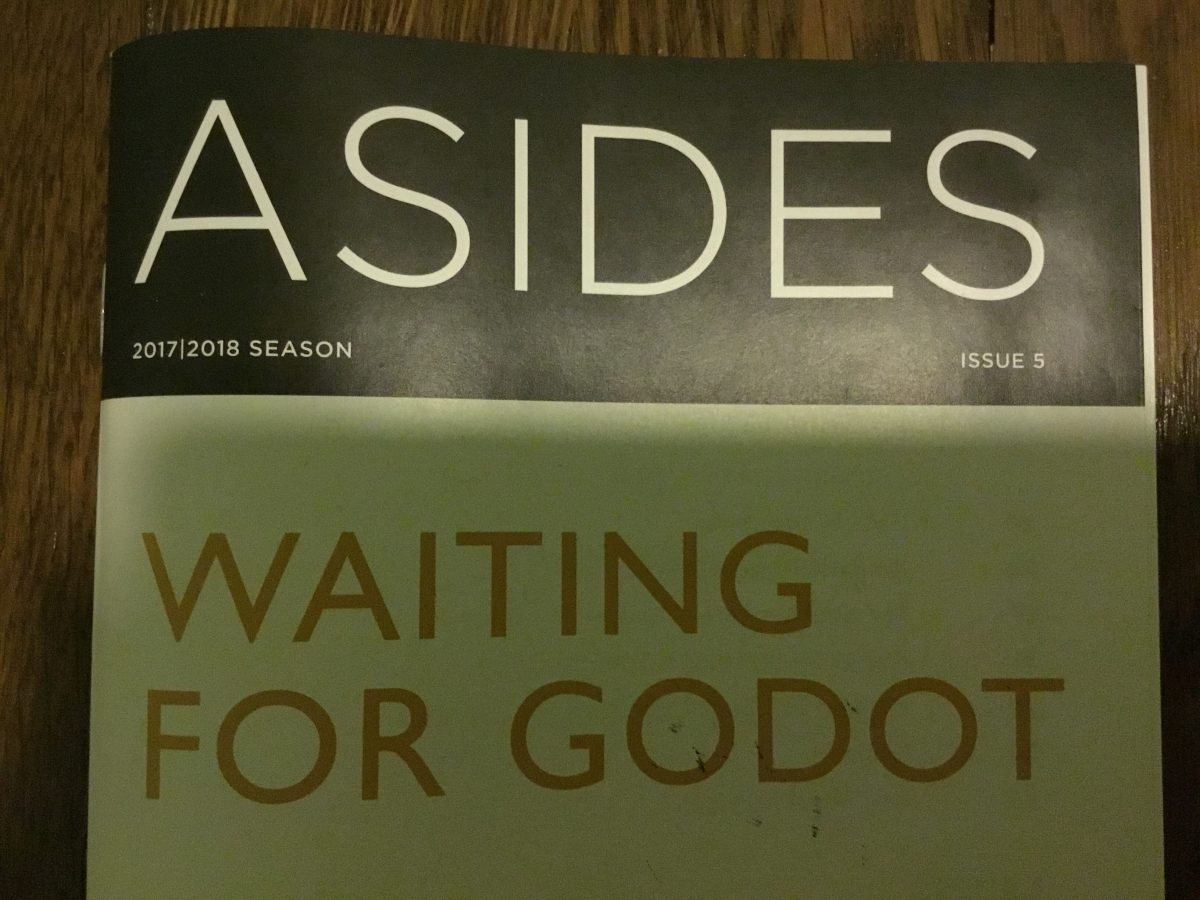Shakespeare Theatre Company’s production of Samuel Beckett’s Waiting for Godot, directed by Gary Haynes, uses bold, energetic performances to override certain stereotypes, and exaggerate others, ultimately exploring what it means to be human. Waiting for Godot follows the downward spiral of two likeable tramps, Vladimir (Marty Rea) and Estragon (Aaron Monaghan). Confined to the same patch of dry, cracked land for the duration of the entire play, this pair cycles between boredom, excitement, thoughtfulness, and desperation, as they wait in vain for a mysterious man they refer to as Godot.
Vladimir is definitely the more logical one of the pair, as he is the one who often decides on a course of action for himself and his companion. It is extremely interesting to watch his interactions with Estragon onstage. Barely a few minutes into the play, I immediately compared their relationship to that of a father and his son; Estragon exudes a childish innocence as he questions how Vladimir decides to spend the abundant time they seem to have as Godot’s arrival is constantly deferred.
The way Rea and Monaghan play their characters also gives them clown-like attributes: Vladimir’s confused frown, lanky physique, and ever-flailing limbs, coupled with Estragon’s wide-eyed, naïve stare and tottering walk make for a duo that is difficult not to laugh at. And yet, despite their comical clumsiness, and their constant stream of witty, seemingly light-hearted banter, Waiting for Godot is tinged with an undercurrent of despair. As the play progresses, their dialogue becomes darker, with allusions towards hanging themselves from the one tree on set, and, more urgent, with one of the tramps exclaiming that they will go insane if they have to wait any longer.
This tragic undertone also emerges when Vladimir and Estragon meet another bizarre duo, Pozzo (Rory Nolan) and his servant, Lucky (Garrett Lombard). I could not decide whether I found the overly-accentuated difference between Lucky and his master comical or sad. Lucky’s most basic rights and mechanical abilities are linked to Pozzo to create a provocatively exaggerated version of the stereotypical master-servant relationship. Pozzo first appears onstage holding Lucky on a rope leash, and while the former often launches into lengthy, nonsensical speeches, Lucky is almost always silent and doubled over on himself. He only speaks once in the entire play, an extremely long monologue, a never ending flood of words uttered at an astonishing speed, prompted by Pozzo simply ordering him to “think”.
In order to properly appreciate the complexity that hides behind the apparent simplicity of Waiting for Godot, I would highly recommend reading the play beforehand. For those who are unfamiliar with Beckett, the show’s bare set, lack of action, and two-hour run time may be puzzling or unappealing. But in spite of this complexity, the Shakespeare Theatre Company masterfully brings the play to life, translating its minimalist style and absurd portrayal of life on a set that could have been taken from a René Magritte painting.
Ester Luna

































































